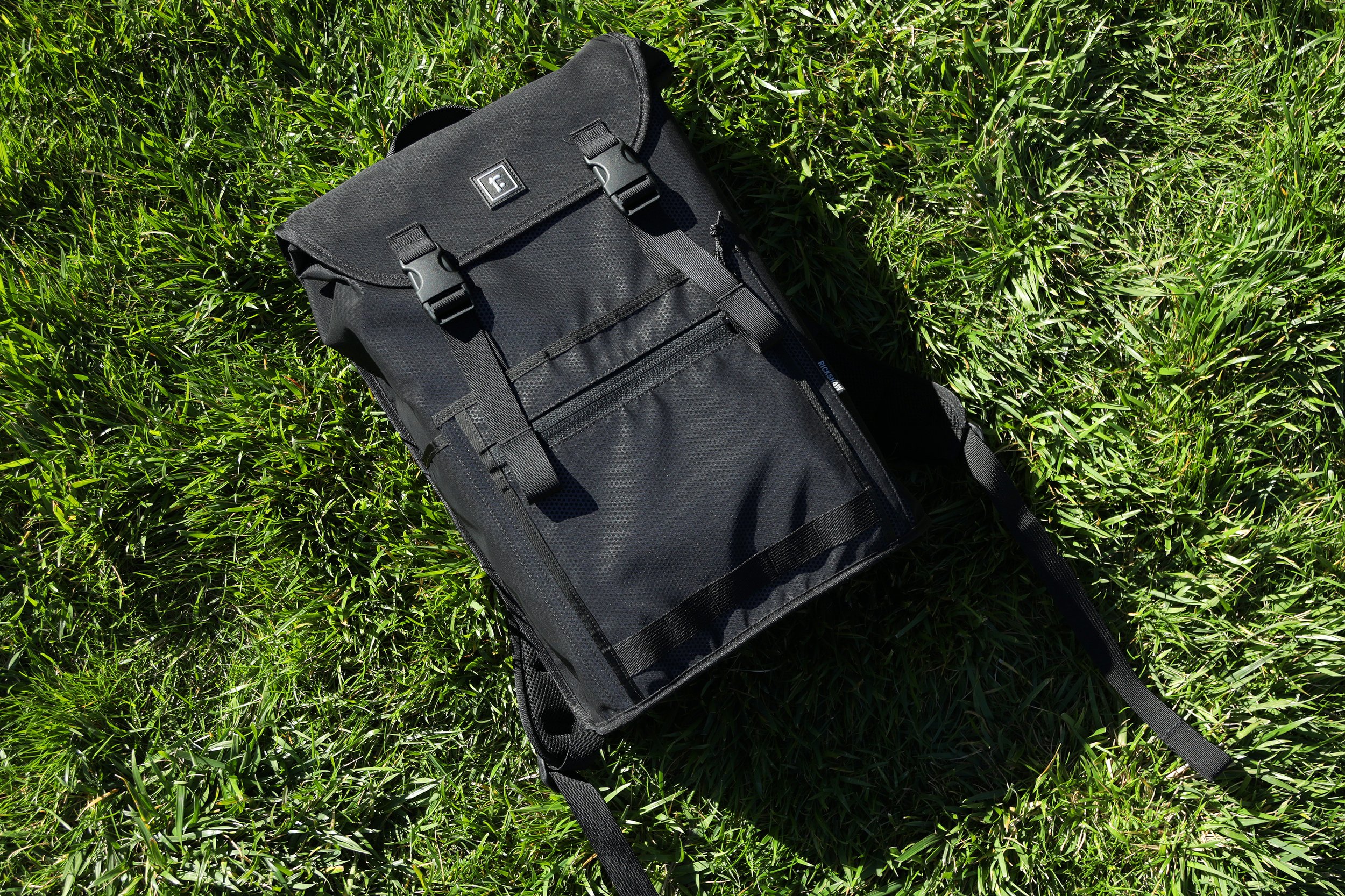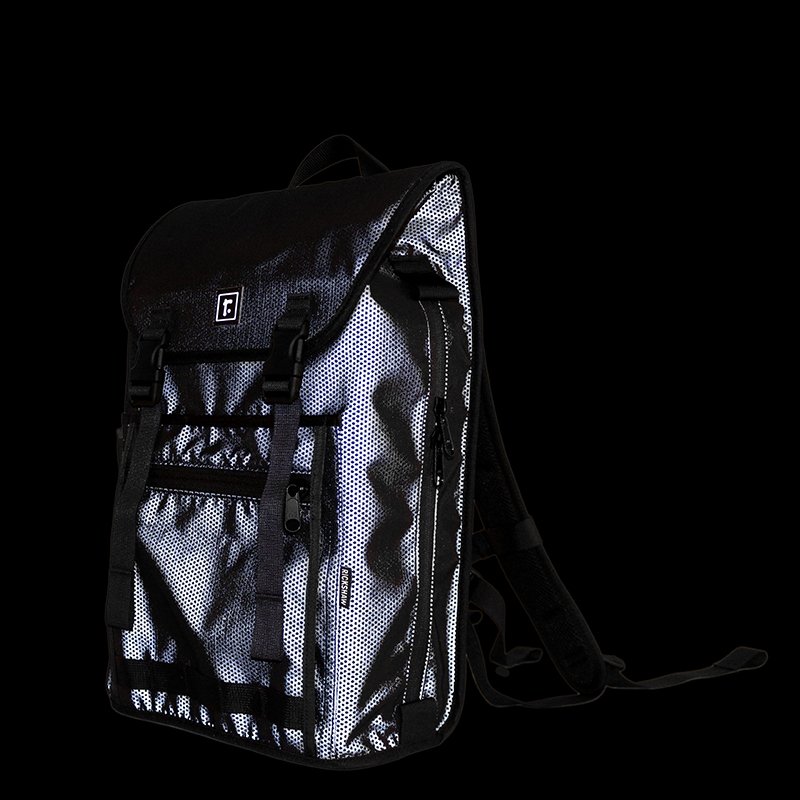Iconic Made-In-San Francisco Bags For Fall
By: Kristen Philipkoski
When I moved to San Francisco in the 90s, it felt like a right of passage to buy a cool bike (mine was a vintage Miyata, black body, bright green seat and handlebar tape), and a bike messenger bag to go with it.
In those days bike messengers zipped through traffic, making hundreds of deliveries a day to high rises downtown and warehouses in SOMA amidst the mania of the first dot-com boom. I wasn’t adventurous enough to be a messenger myself. The best I could do was emulate their look.
The two bag brands we’re featuring today also harken back to those earlier days of San Francisco. One launched during the dot-com bubble and irrational exuberance of the mid-to-late nineties. The other launched post-dot-com bust. We’re thrilled that both have weathered the many destabilizing events that have occurred during their existence, and that they're still in San Francisco, designing and constructing their bags right here in the city.
Waterfield launches in 1998
Gary Waterfield founded his namesake messenger bag brand in 1998. The optimism of that time can’t be overemphasized—no one thought they could fail, and everyone spent money in that spirit. As we all now know, so many businesses (and an entire industry, for a time), collapsed.
Waterfield’s secret to longevity may be the brand’s focus on humility and valuing its people and customers. Throughout the trying times of the early aughts all the way through the pandemic of recent years, Waterfield has operated at a slow and steady pace, producing bags reminiscent of the early messengers but with a touch of refined style.
Waterfield previously worked in the mountain bike industry where parts were made in locations around the world, which was often a frustrating logistical challenge. That’s why he wanted to make his bags all under one roof.
“If customer service has an issue, they can go right down to design, then they both work with production and get things done very quickly,” Waterfield says.
“Having all the machines here and working side by side with the people who manufacture your designs is kind of unheard of,” says Waterfield’s creative director Amyel Oliveros.
The company now makes a range of beautiful and functional messengers, laptop bags, sleeves, and a variety of accessories. The products incorporate highly protective and functional materials including neoprene, nylon, and rare-earth magnets, which are mixed with leather and canvas, giving them the appearance of a designer bag.
Rickshaw joins the scene in 2007
When you consider the supply-chain issues that have held up countless deliveries in the past couple of years, it’s a relief to imagine a brand with its entire operation in one location. And it’s remarkable that yet another messenger bag brand is 100% designed and manufactured in San Francisco.
In 2002, Mark Dwight found himself exiting a career in high tech following the dot-com bust. He came to San Francisco to take the helm at another storied messenger bag company, Timbuk2, which he brought to profitability and sold to private equity investors in 2005.
But he was hooked on messenger bags, and in 2007 struck out on his own and founded Rickshaw. Today, the brand remains small but mighty, with a team of 12 working in a San Francisco warehouse in the Dogpatch neighborhood.
Like Waterfield, having everything in one place is a huge benefit to Rickshaw.
“There’s no barrier between the factory and the front door, and we invite everyone to come on a little tour,” Dwight says. He calls it the “theater of manufacturing. You don’t really see that anymore.”
The brand takes its name from traditional rickshaws in Japan. The word translates literally into “human strength vehicle.” In turn, they call their products “human powered bags,” and that human element is vital to the company.
At the same time, the brand embraces new technologies that can improve production or the product itself.
“We’re constantly, as we grow, adding these new efficiencies and systems and things that make us more streamlined and (create) a better experience for our customers,” says Joe Montana, Rickshaw’s former media and marketing coordinator.
A human touch combined with modern technology are core to Rickshaw’s identity. While the bags are still sewn by hand in San Francisco, Dwight also developed his own reflective thread by partnering with a custom fabric mill in North Carolina.
Rickshaw is also known for its vibrant, sometimes psychedelic fabrics, which are digitally printed in-house using DigiPrint technology.
The brand’s offerings have grown to everything from messenger bags to tote bags, backpacks, laptop bags, wallets and many other accessories. The designs are brightly colored and cheerful, which we can probably all agree is the vibe we need heading into the fall of 2022.
Dwight also founded SF Made, a community of brands that, you guessed it, design and manufacture their goods in SF.
“From the Great Recession to the global pandemic, Rickshaw has been a thrilling adventure,” says the brand’s website.
The same can be said for the city as a whole, and we can’t wait to see what these brands and the community surrounding them have in store for the coming years.











